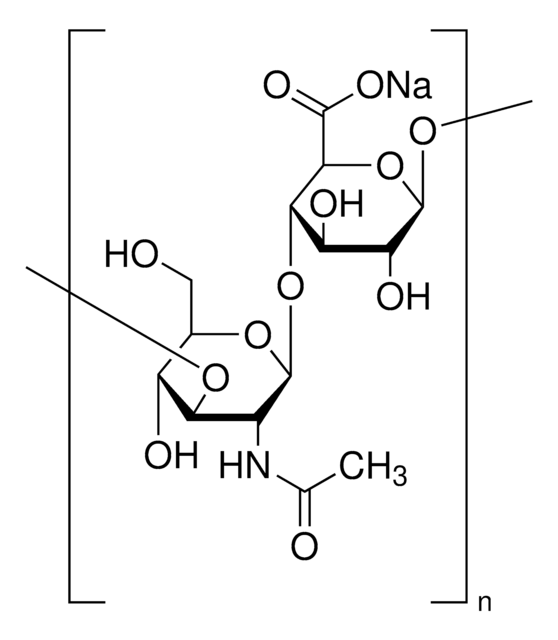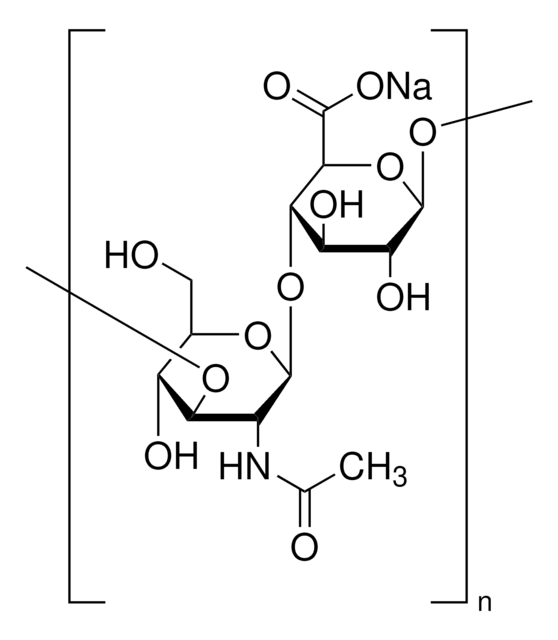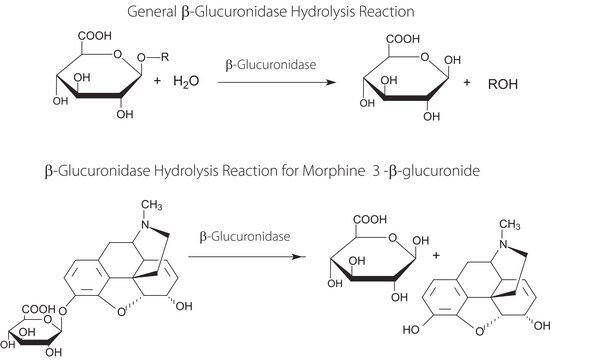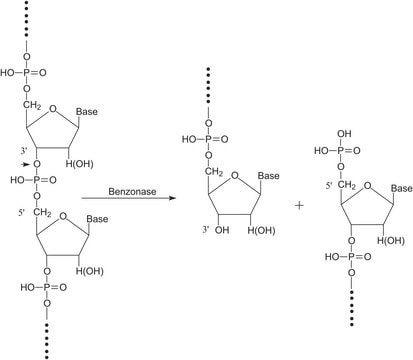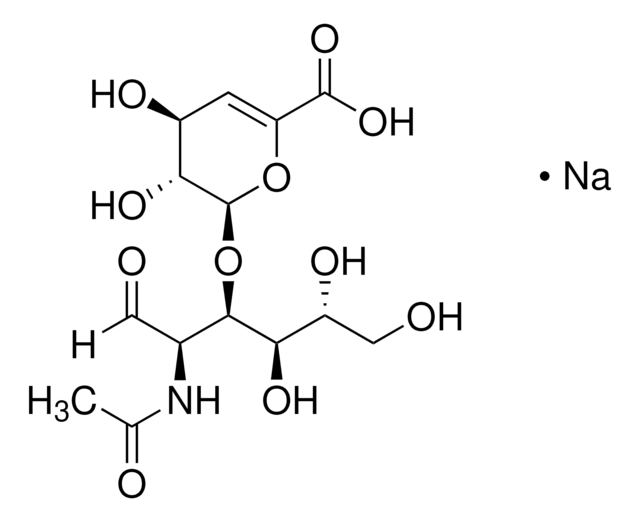H5388
Hyaluronic acid sodium salt from rooster comb
avian glycosaminoglycan polysaccharide
Synonym(s):
Poly(β-glucuronic acid-[1→3]-β-N-acetylglucosamine-[1→4]), alternating
About This Item
Recommended Products
biological source
chicken (rooster comb)
form
powder
impurities
≤2% protein (Lowry)
color
white
solubility
water: ~5 g/L
cation traces
Na: 3-7%
storage temp.
−20°C
InChI
1S/C28H44N2O23.Na/c1-5(33)29-9-18(11(35)7(3-31)47-25(9)46)49-28-17(41)15(39)20(22(53-28)24(44)45)51-26-10(30-6(2)34)19(12(36)8(4-32)48-26)50-27-16(40)13(37)14(38)21(52-27)23(42)43;/h7-22,25-28,31-32,35-41,46H,3-4H2,1-2H3,(H,29,33)(H,30,34)(H,42,43)(H,44,45);/q;+1/t7-,8-,9-,10-,11-,12-,13+,14+,15-,16-,17-,18-,19-,20+,21+,22+,25-,26+,27-,28-;/m1./s1
InChI key
YWIVKILSMZOHHF-QJZPQSOGSA-N
Application
- as a component of bi-layer gelatin scaffold
- as a vehicle for release of gentamicin during left ear surgery in guinea pigs
- in hyaluronic acid binding assay in human embryonic kidney cell line 293T
Biochem/physiol Actions
Other Notes
Storage Class Code
11 - Combustible Solids
WGK
WGK 2
Flash Point(F)
Not applicable
Flash Point(C)
Not applicable
Personal Protective Equipment
Certificates of Analysis (COA)
Search for Certificates of Analysis (COA) by entering the products Lot/Batch Number. Lot and Batch Numbers can be found on a product’s label following the words ‘Lot’ or ‘Batch’.
Already Own This Product?
Find documentation for the products that you have recently purchased in the Document Library.
Customers Also Viewed
Articles
There are five identified glycosaminoglycan chains (see Figure 1): Hyaluronan is not sulfated, but the other glycosaminoglycan chains contain sulfate substituents at various positions of the chain.
Glycosaminoglycans are large linear polysaccharides constructed of repeating disaccharide units.
Our team of scientists has experience in all areas of research including Life Science, Material Science, Chemical Synthesis, Chromatography, Analytical and many others.
Contact Technical Service